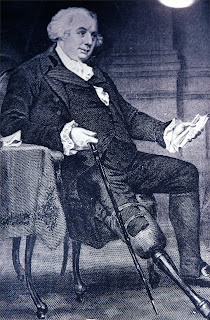“That to
secure these rights, Governments are instituted among Men, deriving their just
powers from the consent of the governed.” —Declaration of Independence
In 1776,
upstart colonists penned the most revolutionary document in history. The Declaration of Independence flipped the
world upside down, and the Divine Right of Kings suddenly became the consent of
the governed. The individual was now the one endowed by their Creator with
certain unalienable rights. This was a world-shattering concept.
Like most
revolutionary visions, this one didn't suddenly spring onto the world stage. John
Locke, David Hume, Adam Smith, and Thomas Paine were among many who advocated
that consent of the governed was dictated by the laws of nature and of nature’s
God. Not everyone accepted this concept, of course—certainly not King George
III or the English nobility.
The
Founders, however, were steeped in this incendiary idea. Self-governance had
been part of their experience in the New World. The colonists were subjects of
England, but a round-trip sail across the great Atlantic put three to four
months between them and their king. Self-rule started the Pilgrims. The
Mayflower Compact began by pledging loyalty to King James, but then went on to
decree that the colonists would “combine together into a civil body politick,
for our better ordering and preservation, and furtherance of the ends aforesaid:
and by virtue hereof do enact, constitute, and frame, such just and equal laws,
ordinances, acts, constitutions, and officers, from time to time, as shall be
thought most meet and convenient for the general good of the colony.”
Basically, the Mayflower Compact was a written statement declaring
self-government in colonial America.












